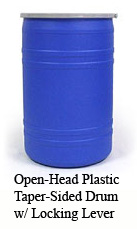 When does a spill need to be reported?
When does a spill need to be reported?
Federal law applies when a spill happens under uncontrolled conditions, such as on the ground or street, and the quantity of the spill is equal to, or more than, the reportable quantity (RQ) or Part 117 of the Clean Water Act (CWA) or Part 302 of the Comprehensive Environmental Response, Compensation, and Liability Act (CERCLA). Such spills must be reported to the authorities because they will affect the environment.
State laws may also govern when a spill must be reported and may be considerably more restrictive than federal law. Find out your state’s requirements and incorporate them into your contingencies plans for the storage area, mix location, and transportation. The state agency that typically is responsible for spill reporting and response is the environmental agency for the state. If your state does not have regulations related to spill reporting, use the guidelines below.
Rule of thumb: Report if there is any potential for harm to human health or the environment from the spill, or if the spill occurs in an area frequented by the public. The spill is not reportable when it does not result in pesticide lost to the environment, and there is no threat to air, soil, or water, such as when it occurs on a concrete floor, or in an enclosed area, and is removed by proper spill clean-up procedures.
More on Notification
Original content compiled by:
